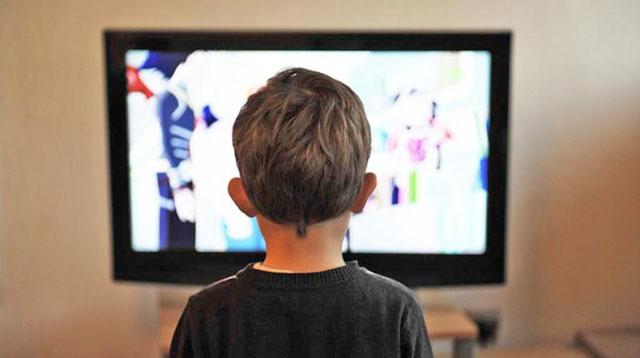You are here
‘Childhood obesity climbing with media use’
By Reuters - Dec 18,2017 - Last updated at Dec 18,2017

Reuters photo
Children’s waistlines have been expanding in lock step with the amount of time they spend with televisions, computers, smartphones and tablets, European doctors say.
In the past 25 years, obesity rates have climbed rapidly among European children and teens, according to a consensus statement from the European Academy of Paediatrics and the European Childhood Obesity Group published in Acta Paediatrica.
Roughly one in five kids and teens in Europe are overweight or obese, according to a 2017 World Health Organisation study, the authors note.
Today, 97 per cent of European households have a TV in their home, 72 per cent have a computer, 68 per cent have Internet access and 91 per cent have mobile phones, according to the statement.
This has spurred a surge in screen time, contributing to inadequate sleep, worse eating habits and less exercise — all of which can make it easy for children to become overweight, the statement authors argue.
“Mass media has been shown to have a broad effect on children’s health and can affect them physiologically and have an impact on their socio-cultural functioning and psychological well-being,” said senior author of the statement, Dr Adamos Hadjipanayis, a researcher at European University Cyprus in Nicosia and secretary general of the European Academy of Paediatrics.
“There is evidence of a strong link between obesity levels across European countries and childhood media exposure,” Hadjipanayis said by e-mail.
Parents are part of the problem, Hadjipanayis and colleagues argue.
Even as children’s screen time rises, parents demonstrate little awareness about what their kids do online or how much time they spend with tablets, smartphones and computers, the statement emphasises.
Food advertising is another problem, because it can convince kids to crave and demand more junk food and make them less likely to eat their fruits and veggies, the statement also notes. Kids also tend to consume a large portion of their daily calories while watching TV, when ads may influence their food choices.
The fix is more vigilance, the authors argue.
“When their TV time goes down, so does their [weight],” said Dr David Hill, chair, American Academy of Paediatrics (AAP) Council on Communications and Media and a researcher at the University of North Carolina School of Medicine in Chapel Hill.
“Food advertising seems to drive this relationship, as opposed to decreased activity. Sleep is also a major concern,” Hill, who was not involved in the statement, said by e-mail. “Screen media before bedtime interfere with sleep quality and duration, and poor sleep contributes to obesity.”
The APP has tips for parents on managing media online, Hill said.
Common sense should prevail, said Dr Jennifer Emond, a researcher at the Geisel School of Medicine at Dartmouth College in Lebanon, New Hampshire, who wasn’t involved in the statement.
“Limit media time each day, no media in the bedroom and ensure the media children are exposed to is high quality,” Emond said by e-mail. “Regarding social media, parents should have access to their children’s social media sites and monitor their children’s interaction with social media — that has benefits beyond promoting a healthy weight.”
Parents of children who are already spending hours a day online and watching various screens may want to cut back media use gradually to make changes more effective, said Erica Kenney, a researcher at the Harvard T.H. Chan School of Public Health in Boston who was not involved in the statement.
“If parents find that their kids are using media for something like seven hours a day or more, which seems pretty typical... trying all of a sudden to get that down to two hours a day is probably not going to be successful,” Kenney said by e-mail.
Related Articles
Children who do not get enough sleep may be more likely to develop diabetes than kids who typically get enough shuteye, a UK study suggests.
Too much television time has long been linked to childhood obesity, but a US study suggests that the connection holds true for smaller scree
Obese children may be less likely to meet a set of five markers for childhood flourishing that include academic and emotional skills, a new



















